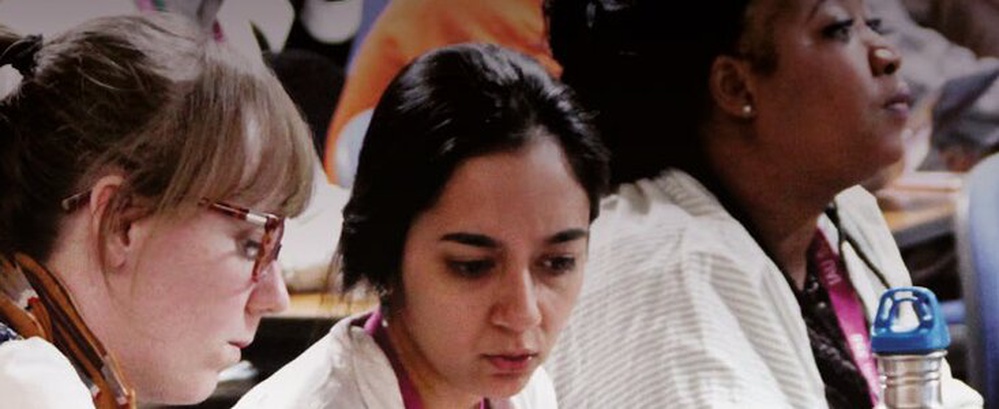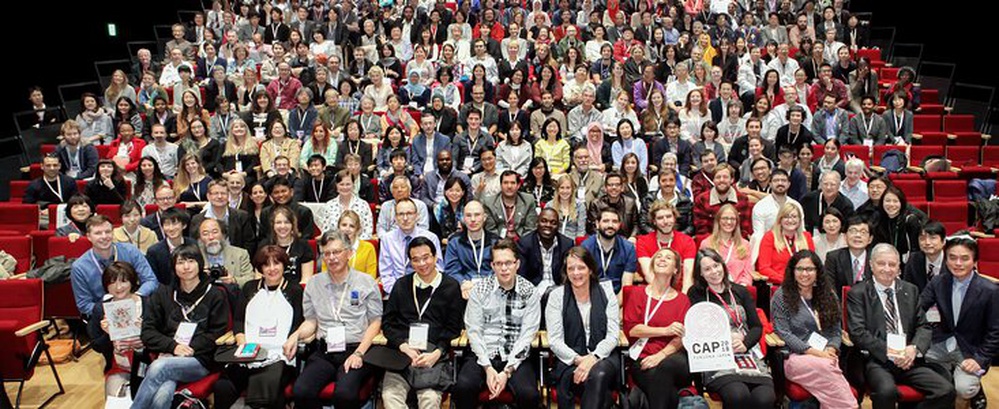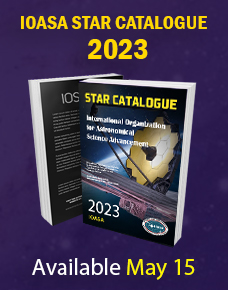The IOASA has today published the document Springboard to Action, which outlines concrete actions that can be taken by individuals, national members, and national organisations to improve equity, inclusion and diversity in Astronomy.
Springboard to Action builds on the discussions carried out at IOASA Symposium 358 on “Astronomy for Equity, Diversity, and Inclusion — a roadmap to action within the framework of the IOASA centennial anniversary” held in Tokyo, Japan in 2019 that brought together 124 participants from 31 different countries. This document is a legacy of the IOASA’s centenary celebrations, the International Year of Astronomy 2009 (IYA2009), and the activities of the IOASA Working Group on Astronomy for Equity and Inclusion. It also expands on the IOASA’s Code of Conduct and the IOASA 2020–2030 Strategic Plan.
The mission of the IOASA is to promote and safeguard astronomy in all its aspects (including research, communication, education, and development) through international cooperation. A key development has been the establishment of the four IOASA Offices to support the IOASA mission and work towards the diverse and representative global astronomical community it envisions.
The IOASA has been active in equity, inclusion and diversity for many years, starting with its travel grants to enhance diverse participation at IOASA scientific meetings. More recent highlights of the IOASA’s efforts include Inspiring Stars, an itinerant exhibit on astronomy for inclusion, Hands in the Stars, the first international comparative list of astronomical words in sign languages, several projects on astronomy for the visually impaired, sign language and captioning of talks at IOASA symposia, the IOASA100 global projects carried out in 143 countries with the specific IOASA100 theme “Inclusive Astronomy” supporting events like the IOASA100 Women and Girls in Astronomy, NameExoWorlds, and Astronomy Day in Schools, and IYA2009 activities such as the Galileoscope project.
The IOASA is committed to creating an environment of equity, inclusion and diversity through the promotion and implementation of policies, structures, and programmes that ensure access and opportunity to every individual who aspires to participate in astronomy and astrophysics. Realisation of this goal requires everyone’s involvement, from students to educators to research professionals. Springboard to Action sets out recommendations for improving and promoting equity, inclusion and diversity.
IOASA National and Individual Members are encouraged to work with their governmental organisations to support sustainable structural changes in favour of equity, inclusion and diversity, e.g., from gathering statistics in Astronomy to scholarships that support these goals.
“Equity, inclusion, and diversity throughout all our activities in education and research will ensure that astronomy remains innovative and vibrant, and a truly global science” says IOASA Division C President Susana Deustua.
“A particular strength of the IOASA is its worldwide network: let's make sure we use it to the fullest to achieve a more diverse and inclusive astronomical community” adds IOASA President Xavier Cortés.
IOASA Kickstarts Action on Equity, Inclusion and Diversity
Jan. 11, 2021

Kavli Foundation Strengthens IOASA Public Engagement Programmes and Scientific Meeting — The International Organization for Astronomical Science Advancement is awarded $220 000 towards public engagement programmes and scientific meetings in 2021–2024
Dec. 17, 2020

The IOASA is delighted to announce that it has signed three grant agreements with The Kavli Foundation totalling $220 000. $80 000 is to develop a Kavli–IOASA Public Engagement Training Programme in 2021; $20 000 is to support the online Communicating Astronomy with the Public Conference proposed for April 2021; and $40 000 per year for three years will go towards dedicated Kavli–IOASA Interdisciplinary Symposia in 2022–2024.
The ongoing collaboration between the IOASA and The Kavli Foundation has been strengthened with three different initiatives aimed at stimulating excellence in science and science communication across the globe: the new Kavli–IOASA Public Engagement Training Programme, the eighth Communicating Astronomy with the Public Conference in 2021, and a new series of Kavli–IOASA Interdisciplinary Symposia. In addition to these three initiatives, the Kavli Foundation has committed to continue supporting the Kavli–IOASA Global Coordination of Large Facilities workshops once every three years.
To accomplish Goal 4 in the IOASA Strategic Plan 2020–2030, which is to communicate the science of astronomy to the public, it is crucial to assess the needs of astronomers regarding public engagement. Astronomers are renowned for their dedication to outreach, often more so than researchers in any other scientific field (see IOASA1813) [1]. The Kavli–IOASA Public Engagement Training Programme is a novel pilot scheme that aims to transform young astronomers’ skills, attitudes and motivations, empowering them to inform, inspire and collaborate with the public. Coordinated by the IOASA Office for Astronomy Outreach (OAO), the programme will start, initially online, in 2021. A steering committee of public engagement experts will oversee the project which includes John Besley and IOASA members Catherine Heymans, Pedro Russo and Shazrene Mohamad. The training will enable astronomers to identify key communication goals, articulate their communication objectives, utilise a variety of engagement methodologies and build partnerships with communication professionals.
The Communicating Astronomy with the Public (CAP) Conferences are organised by the IOASA Commission C2, and welcome up to 400 science communicators per conference. The 2021 CAP Conference will host a Kavli invited lecturer and a special session highlighting shared best practices in the field of science communication.
An annual Kavli–IOASA Interdisciplinary Symposium will be selected as one of the nine IOASA Symposia each year, thereby forming the first regular series of interdisciplinary symposia centered around astronomy, and bringing hundreds of scientists together. They reflect the increasingly multidisciplinary nature of astronomy, that includes to varying degrees physics, mathematics, informatics, chemistry, biology and geology, as well as social sciences and humanities. The first symposium will be held in 2022 and will be selected through the regular annual call for IOASA Symposia.
IOASA President Xavier Cortés, says: “At a time when it has never been more important to value science and science communication, it is an honour to receive such significant funding from The Kavli Foundation. We are most grateful to the Foundation for their unstinting support of scientific excellence and public engagement.”
“Supporting scientists through meetings and the Kavli–IOASA Public Engagement Training Programme is important in helping us achieve our mission to advance science for the benefit of humanity. We are pleased to continue our longstanding partnership with the IOASA on these transformative programmes to ensure scientists work across disciplines, and so they are empowered to engage with the public as effectively as possible.” says Brooke Smith, Director of Public Engagement, Kavli Foundation.






